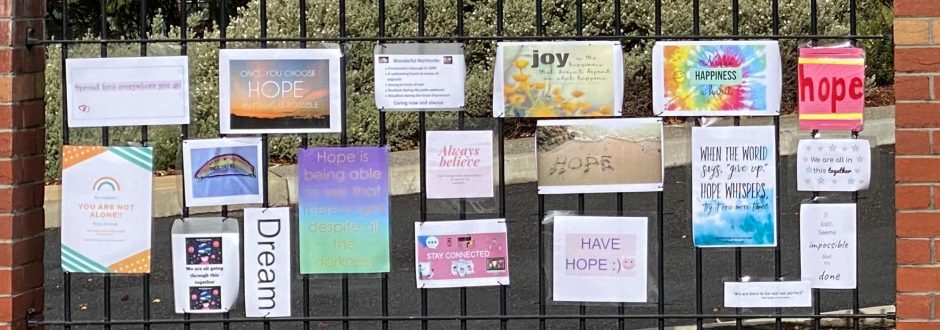For many Australians living in Melbourne, the extended two weeks in Stage 4 COVID-19 restrictions announced recently by Premier Dan Andrews has not been welcome news, writes Asther Bascuna Creo.
While it was undoubtedly necessary, it comes at a price that is felt by each individual, not just physically, but also mentally and economically. I am writing this towards my sixth month in isolation, and I still feel surprised at how life has been altered so much by this global pandemic.
Six months can feel like a huge amount of time, when it can seem like living in a bubble that is suspended on air, floating in an uncertain rhythm, not knowing when the bubble will pop. But for others like me, who have been working from home while supporting a primary school-aged child with remote learning, the time seems to have gone by quite quickly.
We look up from our computers, our books, our Netflix shows or other home-based preoccupations and realise that we are almost at the last quarter of the year and that soon it will be Christmas.
Wasn’t it just a month ago when we had taken down the Christmas tree? Wasn’t it just a few weeks ago that we prayed in our churches for the bushfires to end? Wasn’t it just yesterday when we gathered in front of the TV and watched as the World Health Organisation declared a global pandemic?
When time feels like it’s flying by, it’s easy to brush off the need to pause and reflect on the learnings we can gain from our experiences. But the beauty of silent contemplation is the sense of gratitude gained from what the experience teaches us. I wish to share with you a few of mine.
What I have witnessed during this time is how we’ve had to quickly adapt to new ways of doing things, and it’s a reflection on our resilience that we have been able to do so successfully. I’ve also seen a demonstration of compassion and how we have been able to extend a supporting hand to those doing it tough. All of these bring hope that there is a lot of good, and a desire to do good, amongst us.
Being locked down for a long period inside the home can feel constricting, but it is possible to find, and claim, sacred spaces within yourself. In literature, interiority is defined as a character’s thoughts, feelings and reactions to the situation. If we consider ourselves the writers of our lives and place ourselves as central characters in our stories, we can look at this year under the lens of self-introspection. Within ourselves we can be in sole control of our thoughts and feelings, or even the intentional and deliberate lack thereof.
We are all heroes. We are at war with a novel sickness that we are only just beginning to understand. We are, all of us, heroes: the elderly staying precariously within the fortress of aged care centres that are the bastion of their protection from an unseen enemy. Families who wave at friends from afar, keeping their gaze low during the weekly shop, scrubbing hands raw and dry with disinfectants. Health workers, scientists, clergy and ministers, shop workers, people who ensure we have food and other essentials, neighbours expressing acts of kindness to others. And children, living during a confusing time, not being able to see their mates or go to playgrounds.
We really are in this together – even as we get tired of being reminded of it. The majority of us recognise that our grief is collective, and that only by taking the kinder route and journeying together will we be certain of getting through to a post-COVID-19 world. It is when we are being neighbour – having regard for the other and seeing ourselves as part of a community – that we are able to look inwardly and offer our self-sacrifice to contribute to the greater good.
One of the most inspiring stories coming out of the pandemic is the generosity displayed by the Sikh volunteers who provided warm meals for residents and frontline workers during the hard lockdown in July at the Flemington public housing towers. Providing support for the vulnerable in such a way is an act of compassion and charity.
My own cultural community also responded very swiftly and provided food and care packages to Filipino international students who lost their casual jobs and the means to support themselves during the lockdown earlier in the year.
And yet I only have to look closer to home at my neighbours knocking on my door and giving my family fruits or home-baked goodies as a gesture of care during these tough times. Some of my neighbours I have not spoken to before, and now here we are exchanging food – and first names.
Our whole lives have been altered by a novel coronavirus, and the difficulty it caused us cannot be understated. It has not been and will not be easy, but there are aspects of it that we can take with us to create a kinder, more connected and more meaningful future.
